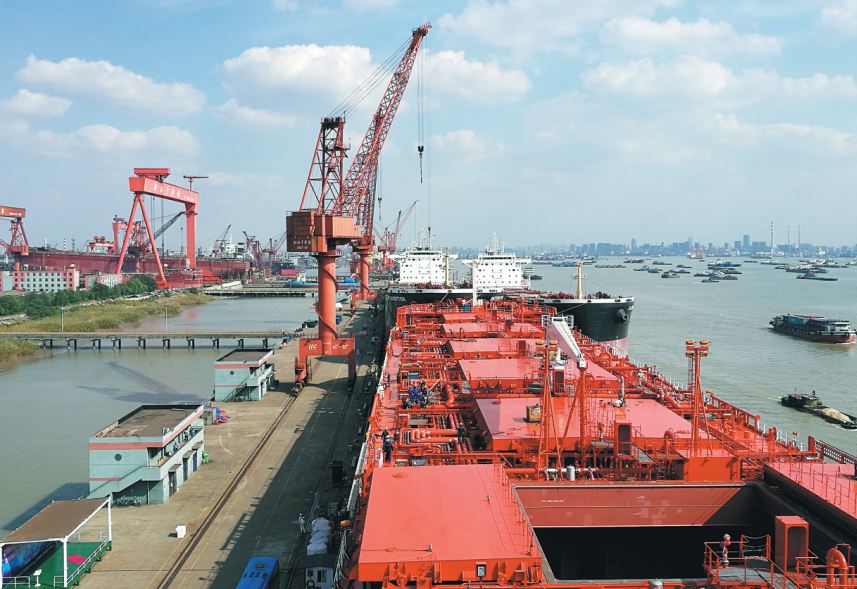Measures to solidify growth in foreign trade


China will implement a series of policy measures, including advancing trade cooperation in the new energy vehicle sector and upgrading the development of processing trade, to solidify its foreign trade growth this year, government officials said on Thursday.
Speaking at a news conference on the 134th China Import and Export Fair, or Canton Fair, Guo Tingting, vice-minister of commerce, said that in response to the challenges posed by the global economic recovery slowdown and weakening demand for goods, the government will roll out new measures to facilitate the export of used cars and support domestic companies in establishing warehouses in overseas markets.
The fair, with a total exhibition area of 1.55 million square meters, will be held in Guangzhou, Guangdong province, from Oct 15 to Nov 4.
Highlighting the significant role of promoting trade liberalization and facilitation, Guo reaffirmed China's commitment to firmly upholding the multilateral trading system, with the World Trade Organization as its core.
"China remains dedicated to maintaining a high level of openness to the global market and aims to expedite the development of a high-standard network of free trade zones," she said.
President Xi Jinping, who is also general secretary of the Communist Party of China Central Committee, has stressed efforts to actively participate in the reform of the WTO and improve the ability to handle high-level opening-up. He made the remarks while presiding over a group study session of the Political Bureau of the CPC Central Committee on Wednesday.
China is in the midst of a green transformation, as traditional export sectors like clothing, household appliances and furniture make room for a fresh wave of technologically advanced and eco-friendly products, said Sun Xiao, secretary-general of the Beijing-based China Chamber of International Commerce.
Chu Shijia, director of the Guangzhou-based China Foreign Trade Center, one of the Canton Fair organizers, said, "This shift reflects the country's transition toward a new era of growth driven by innovation and sustainability."
China saw steady export growth of mechanical and electrical products, such as data processing devices, cellphones and automobiles between January and August, which rose 3.6 percent year-on-year to 8.97 trillion yuan ($1.23 trillion). This accounted for 58 percent of the country's total exports. In particular, exports of automobiles totaled 442.7 billion yuan, up 104.4 percent year-on-year, data from the General Administration of Customs showed.
After participating in various trade shows to gain more orders, Jiangsu General Science Technology Co, a tire manufacturer based in Wuxi, Jiangsu province, exported $164,700 worth of tires to Malaysia, Thailand and Pakistan last week.
Thanks to the multiple free trade agreements between China and many countries involved in the Belt and Road Initiative, tire exports enjoy favorable tariff preferences in those importing countries, said Zhang Gaorong, the company's executive vice-president.
"Moreover, the rubber imported from these signatory countries for tire manufacturing in China can also leverage these tariff preferences, further bolstering our competitive edge in the global market," he said.




































